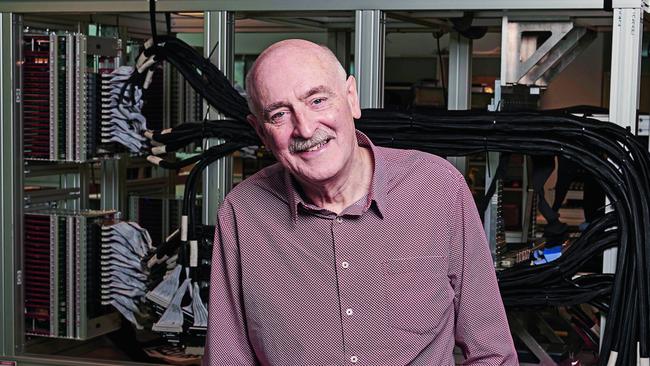Q&A: Fred Watson, astronomer, 76
Astronomer Fred Watson on extraterrestrial life, his old mate Billy Connolly, and why this is a golden age for stargazers.

As Australia’s astronomer-at-large, you communicate big ideas to the masses. So let’s cut to the chase: are we alone in the universe? We don’t know. Most astrobiologists believe we will eventually find evidence of rudimentary life. But it’s a big step from microbes to multi-celled organisms. And even if we’re not alone, we might be effectively alone because there’s no possibility of contact. This is one of the slight disadvantages of the universe: it’s rather big!
What breakthroughs have excited you in recent years? The Cassini mission to explore Saturn (2004-17) opened up vistas that were unimaginable before. And the first observation and measurement of gravitational waves (2015), which is the shaking of space caused by things like black holes merging, has opened up a new way of looking at the cosmos.
Why is this a golden age for Australian astronomy? One of the fabulous things happening now is a global radio telescope that’s being built in two halves, in Western Australia and South Africa – two of the most radio-quiet places in the world. It’s a huge project called the Square Kilometre Array.
Some people like to think of Mars as Planet B. Will it ever be an option for holidaymakers? It might be. And I’d rather have people going there for their holidays than seeing it as a lifeboat. But I’d rather see it reserved as a place for science.
What is “5691 Fred Watson”? It’s an asteroid. I’ve only seen it once, as part of the ABC’s Stargazing Live from Siding Spring observatory in Central West NSW, where I was astronomer-in-charge for years. It’s one of millions of asteroids in the Main Belt between Mars and Jupiter. It’s a fairly boring piece of rock – leftover debris from the formation of the solar system.
So, profound and dull. Like the arrival of Halley’s Comet in 1986... That was a fizzer everywhere. And we knew in 1910 that it was going to be a fizzer. But nobody told the media.
What’s the next big event we can expect to see? A total eclipse of the sun on December 14 this year (my birthday), visible from northern Chile. Eclipses are always spectacular, almost spiritual experiences. I think it’s one reason we have religion. It feels like the end of the world.
You’re also a guitarist and librettist. How do you work this into your day job? Any way I possibly can! My other great passion has always been music. In the UK in the ’60s and ’70s I played and sang in folk clubs – for a while Billy Connolly and Gerry Rafferty (the Humblebums) were my competition. More recently I’ve worked with composer Ross Edwards on a number of choral works – in 2008 we won an APRA award for a choral symphony called Star Chant. I wrote the words; it’s a journey through the night sky in Australia.
Where’s the best place to stargaze without a telescope? Warrambungle National Park, near Siding Spring, was our first “dark sky park” and a fantastic place to look at the night sky.
What do you think of when you look up? Honestly, it still fills me with wonder. I’ve been looking at the sky for more than 60 years now, and it still gives me a buzz.
Cosmic Chronicles: A User’s Guide to the Universe by Fred Watson (New South, $32.99) is out now.



To join the conversation, please log in. Don't have an account? Register
Join the conversation, you are commenting as Logout